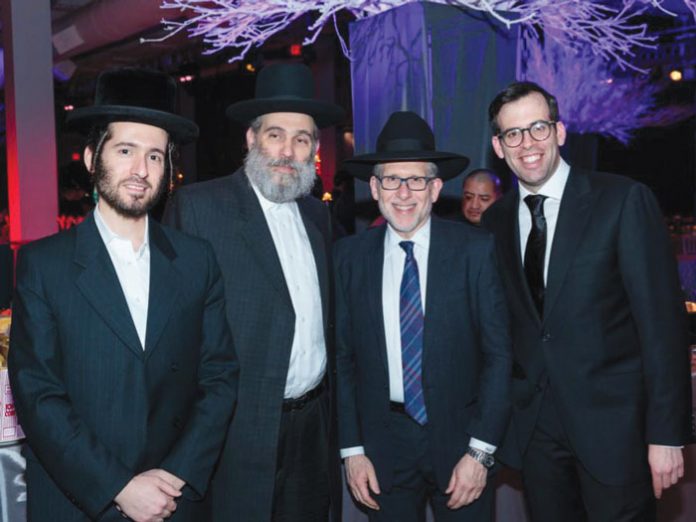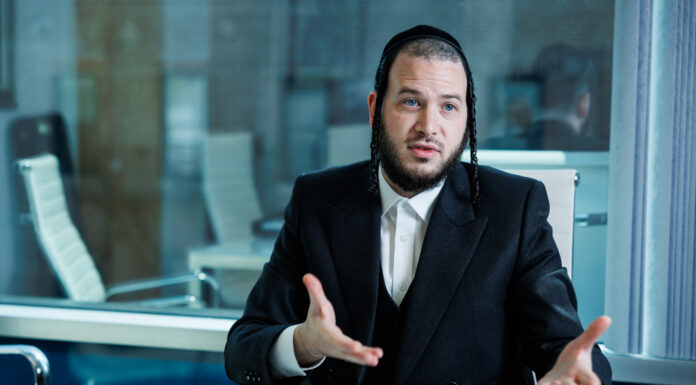Many years ago I heard a speech at an RCCS luncheon given by Rebbetzin Zahava Braunstein, who, unbeknownst to her audience, was undergoing cancer treatment. “Being hospitalized,” she said, “is like entering a new world, a parallel universe in which one has to learn new words and terminology.” She then went on to describe the fears and loneliness people experience when they find themselves suddenly hospitalized. And it’s not just the patient; the entire family is thrown into turmoil. They find themselves having to navigate a whole new reality, at a time when they are already stressed out to the max.
This is the world in which medical liaisons spend their lives. Unlike a traditional referral service that a person consults for guidance in treating an illness, medical liaisons are on-site at the hospitals most of the time. Their role is to guide and counsel patients and their families; act as go-betweens to enhance communication between the medical staff and patients; and clear up misunderstandings as they arise. They can also facilitate transfers, arrange for appointments with doctors, and act as interpreters when there is a language barrier.
We spoke to Rabbi Yisroel Kahan, the medical liaison at Good Samaritan Hospital, Westchester Medical Center Health Network. Rabbi Kahan has spent almost two decades—first as a volunteer, and today as a hospital employee—helping the sick and their families. He is also a member of Igud Harabbanim’s team that answers medical halachic questions.
As he explains, “Whenever a patient, especially a child, is admitted with a serious illness, the family’s life is turned upside down. They’re frightened and don’t know what to expect. How long will the child remain hospitalized? Where will they get kosher food? What about Shabbos? And most importantly, will the doctors be the right messengers to heal our child?
“Our job is to address all these questions and make sure that everyone feels secure. We smooth out any issues or lack of communication between the patient and the hospital to prevent problems. We make sure that the patient is seeing the best doctors and that the family understands the course of treatment. It’s all about raising everyone’s comfort level. And if medically necessary, we will also arrange a transfer to another hospital, which requires an extraordinary level of cooperation between medical liaisons in hospitals all around the country.”
But where do these medical liaisons turn to when they themselves are stumped or need leads or help? They tap into the resources of the Jewish Medical Liaison Group (JMLG), a loosely affiliated organization of medical askanim and people who are employed in hospitals.
Rabbi Kahan, an active member of JMLG, describes the group as follows:
“The group was founded around ten years ago, and there is a board that consists of Sruly Rosman from NYU, Rabbi Baruch Ber Bender of Achiezer, Rabbi Naftali Reiner from Lutheran Hospital, Chaim Fleischer of Yachad, and Solomon Rosenberg from Montefiore. JMLG is a tight-knit group of people who are all involved in the medical care of members of our community and have joined forces to pool our collective knowledge. Some people are medical liaisons, others are patient reps, but we all work together. We exchange phone calls and texts—and more recently, communicate through a WhatsApp group—combining our areas of expertise to make sure that everything goes smoothly for our patients. In fact, the WhatsApp group has been so successful that it is now our primary means of communication. A member will message the group at any given time explaining what he needs, and if anyone can help he’ll be answered right away.
“Most of us are from the tri-state area, with our network extending throughout the country as well as Canada. Some of our members don’t actually work in hospitals; rather, they are part of bikur cholim organizations and the like. Others have strong ties to various hospitals. But in order to help a patient we put aside all our labels because it’s not a competition. All of us work in a hospital in some capacity, either paid or voluntary, for that very purpose.





















